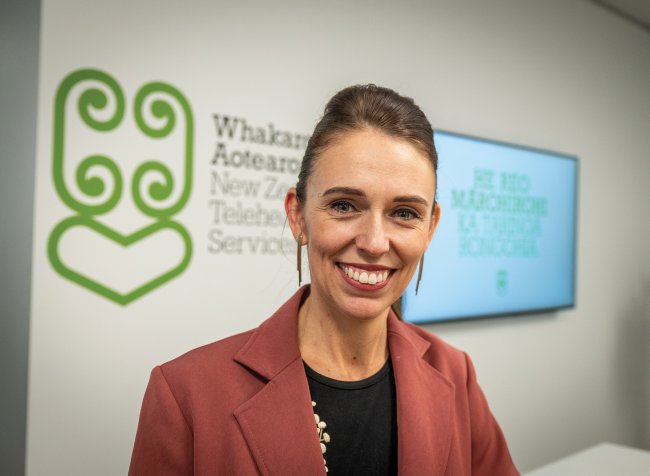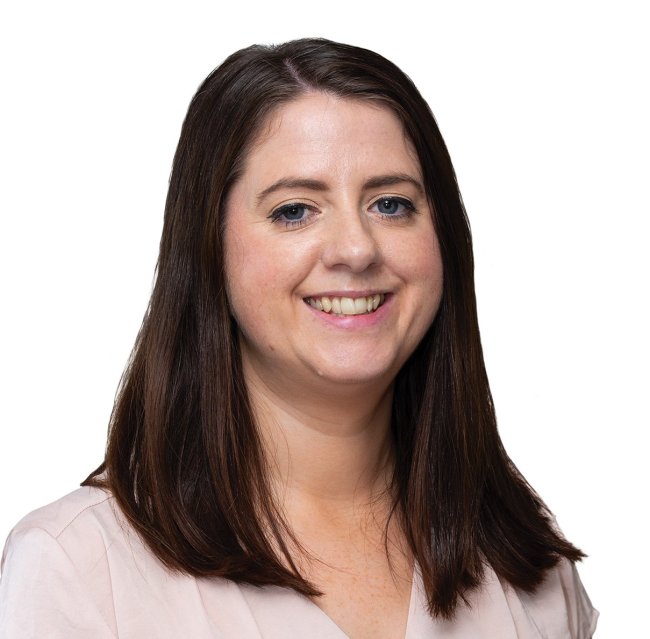Respiratory physician Lutz Beckert considers chronic obstructive pulmonary disease management, including the prevention of COPD, the importance of smoking cessation and pulmonary rehabilitation, and the lifesaving potential of addressing treatable traits. He also discusses the logic of inhaler therapy, moving from single therapy to dual and triple therapy when indicated, as well as other aspects of management
A way with words
A way with words

Editor Barbara Fountain is trying hard to engage with the new health agencies’ linguistic innovations
I like the idea of using new words when old ones just won’t do.
The new epithet for the commissioning folk of Te Whatu Ora and Te Aka Whai Ora – wayfinder – doesn’t instantly sit easy in a world full of managers, advisers and leads, and that is the point of introducing it. It will gain a certain cachet.
Nevertheless, colleagues might be left surmising they’ve just met the agency’s “welcome” host, the junior tasked with ensuring you know the fire exits and where the coffee is stored.
Far from it. The recent appointments acquiring the moniker are senior regional people with years of experience in health who will be overseeing teams of commissioning wayfinders around the country.
Te Whatu Ora’s national director commissioning, surely aka chief wayfinder, Abbe Anderson mentioned her desire to usher in a new term around commissioning last year. She told reporter Martin Johnston in November: “I want to have language that’s about what we actually do and what we’re doing in respect of the communities that we’re serving…I want to have ‘architects’ and ‘designers’ and I want to have ‘wayfinders’ and ‘storytellers’, instead of data analysts and all that sort of thing.”
There is certainly sufficient confusion in the health sector over the difference between contracting and commissioning and mostly because the latter often merges into the former, that providing a new descriptor has the benefit that people will start by asking the wayfinders, “exactly what is it you do?”
If a commissioning wayfinder answers as per a recent media release, the job is to “find a way through, to remove barriers and to shine the light on possible paths forward” in pursuit of pae ora (healthy futures). More specifically, wayfinders (not to be confused with pathfinders who presumably have a path to find) will be tasked with finding a way to get all local stakeholders together and onboard for localities and health services.
If this were a fantasy novel with a title like Quest of the Wayfinders, these lead characters would come equipped with natural clairvoyancy and unearthly powers of suggestion. Instead, our wayfinders will presumably have a very good contact list, sufficient funding to make a difference, and plenty of free evenings.
At this stage in the health system’s lifespan, it’s pretty much a case of nothing ventured, nothing gained. A new guide to commissioning in the sector lauds a commitment to “turning conventional commissioning on its head.” Words help.
It might take time for the new title to bed in and there’ll be a few jests: where some say wayfinder, others hear wayfarer and others become waylaid and left by the wayside. But it represents movement in localities, an area dear to the hearts of those working in primary care.
Jacinda Ardern had a way with words throughout her prime ministership. Her resignation struck me with a certain melancholy, a sense the country had lost something unique. For many of you in your everyday work in the health sector, words like empathy, caring, kindness and compassion are commonplace. They are part of your vernacular.
Not so long ago, they were not commonplace in our Parliament or public discourse. Not that politicians didn’t have these emotions; it was just not the place. You did not need to agree with Labour’s policies to agree with a shift in language and intent. The tragic mosque shootings in Christchurch and Ms Ardern’s response prepared us for what was to come with the pandemic. The Government’s response had flaws, but the spirit with which our country responded and the priorities set were framed by words easily translated across languages and easily acted upon; words that cut through political cant.
Hopefully that is Ms Ardern’s lasting legacy
Originally from Northern Ireland, Patrice Dougan cut her teeth on regional daily newspapers, before jumping on a plane and moving to New Zealand in 2012. Since then, she has worked at TVNZ’s 1 News website, NZME’s news service and The New Zealand Herald, mostly focusing on live and online news coverage. She did a brief stint as education reporter at the Herald, before moving into a chief reporter’s role. Patrice joined New Zealand Doctor Rata Aotearoa last month, with more than 15 years’ experience in daily and online news. She lives in Auckland with her partner and two children.
We're publishing this article as a FREE READ so it is FREE to read and EASY to share more widely. Please support us and the hard work of our journalists by clicking here and subscribing to our publication and website






![Barbara Fountain, editor of New Zealand Doctor Rata Aotearoa, and Paul Hutchison, GP and senior medical clinician at Tāmaki Health [Image: Simon Maude]](/sites/default/files/styles/thumbnail_cropped_100/public/2025-03/Barbara%20Fountain%2C%20editor%20of%20New%20Zealand%20Doctor%20Rata%20Aotearoa%2C%20and%20Paul%20Hutchison%2C%20GP%20and%20senior%20medical%20clinician%20at%20T%C4%81maki%20Health%20CR%20Simon%20Maude.jpg?itok=-HbQ1EYA)
![Lori Peters, NP and advanced health improvement practitioner at Mahitahi Hauora, and Jasper Nacilla, NP at The Terrace Medical Centre in Wellington [Image: Simon Maude]](/sites/default/files/styles/thumbnail_cropped_100/public/2025-03/2.%20Lori%20Peters%2C%20NP%20and%20advanced%20HIP%20at%20Mahitahi%20Hauora%2C%20and%20Jasper%20Nacilla%2C%20NP%20at%20The%20Terrace%20Medical%20Centre%20in%20Wellington%20CR%20Simon%20Maude.jpg?itok=sUfbsSF1)
![Ministry of Social Development health and disability coordinator Liz Williams, regional health advisors Mary Mojel and Larah Takarangi, and health and disability coordinators Rebecca Staunton and Myint Than Htut [Image: Simon Maude]](/sites/default/files/styles/thumbnail_cropped_100/public/2025-03/3.%20Ministry%20of%20Social%20Development%27s%20Liz%20Williams%2C%20Mary%20Mojel%2C%20Larah%20Takarangi%2C%20Rebecca%20Staunton%20and%20Myint%20Than%20Htut%20CR%20Simon%20Maude.jpg?itok=9ceOujzC)
![Locum GP Helen Fisher, with Te Kuiti Medical Centre NP Bridget Woodney [Image: Simon Maude]](/sites/default/files/styles/thumbnail_cropped_100/public/2025-03/4.%20Locum%20GP%20Helen%20Fisher%2C%20with%20Te%20Kuiti%20Medical%20Centre%20NP%20Bridget%20Woodney%20CR%20Simon%20Maude.jpg?itok=TJeODetm)
![Ruby Faulkner, GPEP2, with David Small, GPEP3 from The Doctors Greenmeadows in Napier [Image: Simon Maude]](/sites/default/files/styles/thumbnail_cropped_100/public/2025-03/5.%20Ruby%20Faulkner%2C%20GPEP2%2C%20with%20David%20Small%2C%20GPEP3%20from%20The%20Doctors%20Greenmeadows%20in%20Napier%20CR%20Simon%20Maude.jpg?itok=B0u4wsIs)
![Rochelle Langton and Libby Thomas, marketing advisors at the Medical Protection Society [Image: Simon Maude]](/sites/default/files/styles/thumbnail_cropped_100/public/2025-03/6.%20Rochelle%20Langton%20and%20Libby%20Thomas%2C%20marketing%20advisors%20at%20the%20Medical%20Protection%20Society%20CR%20Simon%20Maude.jpg?itok=r52_Cf74)
![Specialist GP Lucy Gibberd, medical advisor at MPS, and Zara Bolam, urgent-care specialist at The Nest Health Centre in Inglewood [Image: Simon Maude]](/sites/default/files/styles/thumbnail_cropped_100/public/2025-03/7.%20Specialist%20GP%20Lucy%20Gibberd%2C%20medical%20advisor%20at%20MPS%2C%20and%20Zara%20Bolam%2C%20urgent-care%20specialist%20at%20The%20Nest%20Health%20Centre%20in%20Inglewood%20CR%20Simon%20Maude.jpg?itok=z8eVoBU3)
![Olivia Blackmore and Trudee Sharp, NPs at Gore Health Centre, and Gaylene Hastie, NP at Queenstown Medical Centre [Image: Simon Maude]](/sites/default/files/styles/thumbnail_cropped_100/public/2025-03/8.%20Olivia%20Blackmore%20and%20Trudee%20Sharp%2C%20NPs%20at%20Gore%20Health%20Centre%2C%20and%20Gaylene%20Hastie%2C%20NP%20at%20Queenstown%20Medical%20Centre%20CR%20Simon%20Maude.jpg?itok=Z6u9d0XH)
![Mary Toloa, specialist GP at Porirua and Union Community Health Service in Wellington, Mara Coler, clinical pharmacist at Tū Ora Compass Health, and Bhavna Mistry, specialist GP at Porirua and Union Community Health Service [Image: Simon Maude]](/sites/default/files/styles/thumbnail_cropped_100/public/2025-03/9.%20Mary%20Toloa%2C%20Porirua%20and%20Union%20Community%20Health%20Service%20in%20Wellington%2C%20Mara%20Coler%2C%20T%C5%AB%20Ora%20Compass%20Health%2C%20and%20Bhavna%20Mistry%2C%20PUCHS%20CR%20Simon%20Maude.jpg?itok=kpChr0cc)